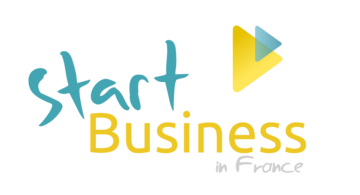Avoid these 5 mistakes if you plan to move to France and create a business. These are the most common mistakes that I see expats doing.
Mistake # 1 - Getting the wrong visa or carte de sejour
If you plan to come to France and start your own business, you have to apply for the right visa or carte de sejour straight away. If you come over with a tourist visa, you will not be able to register your business and you will have to go back to square one, filing in a new visa request. Think about 3 to 6-month delay for your project. If you are a non-European citizen, get in touch with the French Embassy in your country and get ready by applying for an entrepreneur visa or carte de sejour entrepreneur.
List of visa or carte de sejour that you may consider:
- Visa Talents - for the highly qualified, high-tech, artists.
- Visa Profession Liberale - for consultants, coaches, freelancers, programmers, content editors.
- Visa Commercant - for e-commerce, buy to resell, shops, restaurants, gites, hotels.
- Visa Vie Privee et Famille - when you have a family member or spouse in France.
- APS visa - for postgraduate students.
- Carte de sejour profession liberale/ entrepreneur for British citizen arriving in France after 1st Jan 2021.
- Withdrawal Agreement carte de sejour for British citizen who were French residents before 31st December 2020.
You can save some time by starting to work on your business plan (no business plan required for WA carte de sejour).
Mistake # 2 - Having a short-term vision of your activity
You might want to start earning an income quickly and may be tempted to include 3 to 4 activities which come through your mind. This is tricky to do in France, as many activities relate to different bodies based on your activity type: intellectual services, manual activities, trading activities (buy to resell, e-commerce, shop, gite). Having a mix of activities can be tough to register or may mean a double registration. For instance Chambre de Commerce and Chambre de Metiers for someone with an e-commerce site and also providing garden maintenance services.
Having too many activities also mean that you cannot focus on developing each of them and may waste some time by spreading yourself too thin. Project yourself in 2 to 3 years time. What do you really fancy doing and enjoying on a day-to-day basis?
Mistake # 3 - Making things too complicated
It is a great idea to get some advice from a lawyer or an accountant, but sometimes they tend to sell you a structure which is too complicated or too rigid for your actual needs. I agree with protecting your asset, but you have to assess what the real risks are.
For instance, a content editor or communication consultant creating an incorporated business to protect their personal asset. If there is limited risk in their activity and they plan to reach about 30,000€ to 50,000€ of turnover, registering as an incorporated business is too complicated - more expensive to set up and run, as well as less flexible. Another example is setting up a structure such as SAS/SASU where you will pay yourself only via dividends to avoid paying some social charges. You will find yourself without a health cover as you don’t pay taxes. Paying yourself via dividends may also work for a year or two, but will become expensive if you need to pay yourself a salary in the long term. Think 72% on top of your net salary.
My Motto is to keep it simple. Go for an easy to understand and easy to manage legal structure, then grow with your business. For instance, you might start as a micro entrepreneur to test your market and get to know the French system, then in your second year in business move up to an incorporated business, in order to start deducting your expenses or to protect your asset.
Mistake # 4 - Having a short term address
You will need a French address in order to register your business. For some trading activities such as buy to resell, e-commerce, gites and for manual activities, you will have to provide proof of this address (with a utility bill in your name). If you are renting a property, you therefore need to ask your landlord if he or she allows you to use this address for administrative purposes.
You may also decide to move to a different area of France or buy a house within 6-months of moving to France. This would mean having to change your business address and inform all the relevant bodies: tax office, body collecting your social charges, health cover, the body you initially registered your business with. If this is your situation, you may consider renting a PO box for your business called “adresse de domiciliation”. This way your personal address will not be disclosed and you will only have to inform the domiciliation company of your new address. Read my article on how to set up a PO box in France.
Mistake # 5 - Forgetting key paperwork
Creating your business in France means that your identity will be fully checked in order to create your French social security number. This is the golden ticket to get your health cover and your carte vitale (health card required for medical appointments). You will therefore need to come prepared with:
- an up-to-date passport
- a copy of your birth certificate
- a copy of your marriage certificate
- A copy of your qualifications for regulated or manual activities, e.g. medical professions, accountants, lawyers, building trade, beauticians, hairdressers. You may need proof of your qualification or proof of 3-years experience as an employee or as self-employed.
Above all, don’t second guess your choices and plan ahead. If you need help to get some clarify on your business project, book a Power Hour with me.

